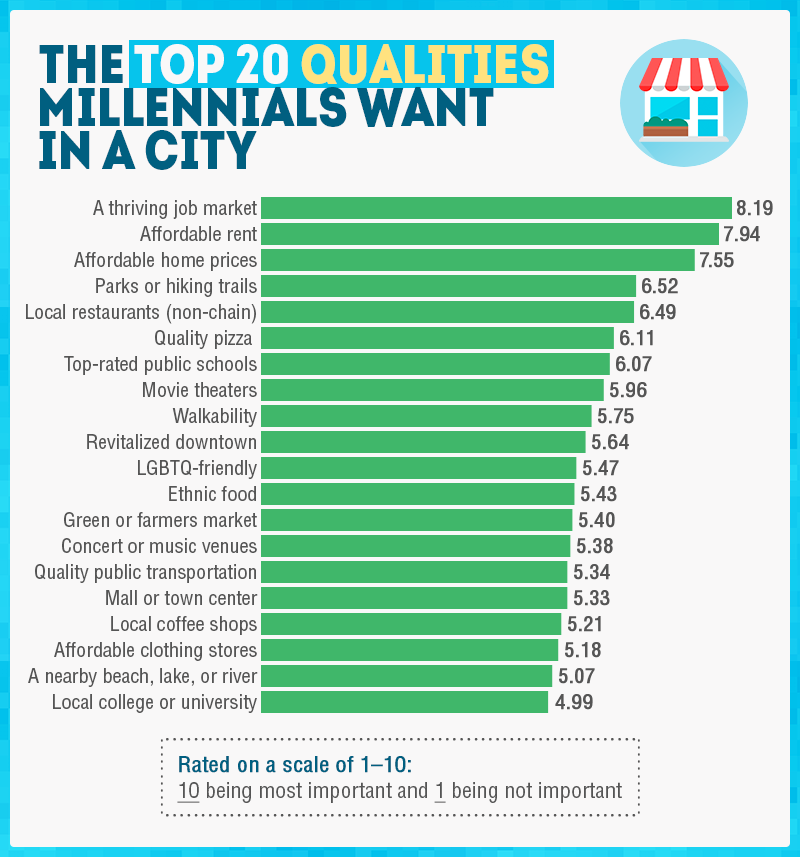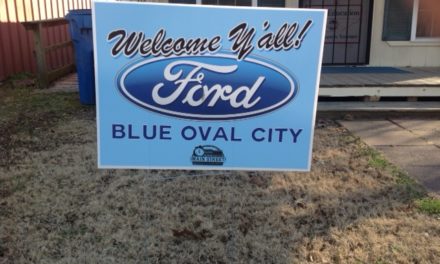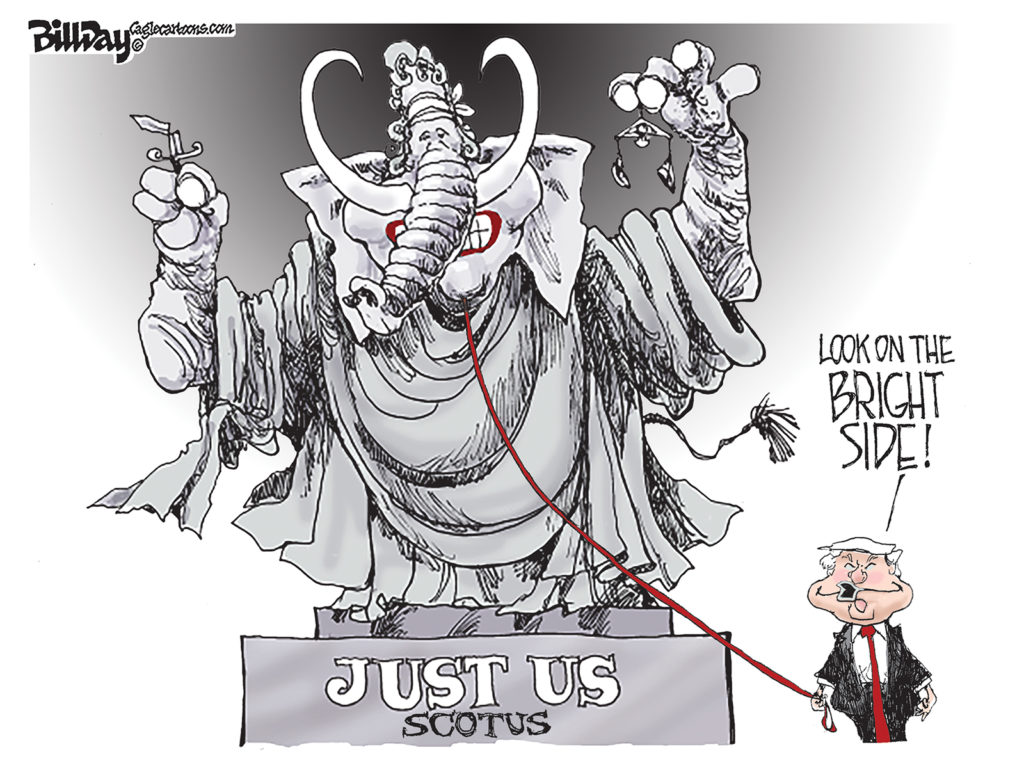We were writing in our last post about the risks of being hypnotized by our own hyperbole, and living in a world characterized by the constant spin that we get from all sides, it becomes even a bigger risk.
After all, there’s not a day that goes by that we are not confronted with a statistic that is interpreted to justify completely opposite points of view, or a data point that’s just a little too perfect for what we want to believe.
Even the flood of city rankings on every imaginable subject can be quoted by city leaders when it provides a cheerleading talking point. We can remember not many years ago that we were apoplectic about the Forbes rankings that put Memphis at the bottom of lists about quality of life or rankings about the most stressful cities, and yet, now that some of these rankings are positive for Memphis, we treat them as if they are incontrovertible sources of data.
The flaws in these rankings are the lack of a coherent methodology when the results can dramatically change simply by choosing different factors. As a result, our general policy is to ignore these rankings.
It’s Human Capital, Stupid
It is surprising how some of these statistics enter the bloodstream because we want so hard to believe they are true. A recent example is one involving millennials and Time magazine’s reporting that Memphis is one of the top cities where millennials are moving.
Based on a real estate advisory firm, the magazine said that Memphis ranked #4, however, it was for the MSA, not the city, and it was based on the change in the 25-34 year-old demographic, which Time then conflated with moves into the area. The tell for the article was that Memphis outperformed Nashville, Austin, Charlotte, Raleigh, and Washington, D.C.
More likely, if there was an increase in the 25-34 year-old demographic – the real estate firm claimed it was 9.5% between 2010-2015 – it was the younger demographic aging into the older one, but it’s hard to understand the numbers since there was a lack of information for how they were determined.
Regardless, the article was often quoted by many people who wanted it to be true, and while we are not adverse to the “fake it until you make it” attitude, our concern is that by repeating it as a talking point, we run the risk of diminishing the urgency of college-educated millennials as a priority for our community.
The Gold Standard
To repeat our oft-stated point, while cities are fighting for the gold standard of the workforce – these college-educated young workers – we have a bulge in young people that should be our competitive advantage – if we can get them into the line receiving college diplomas. For example, 25.3% of Memphis’ population is under 18, compared to 21.5% for Nashville, 21.4% for Austin, and 18.7% for Atlanta. Nationally, it is 22.6%.
In other words, Memphis has 21,000 more youths than Nashville although the cities have roughly the same population within its city limits. It’s a fact that should motivate us to redouble us our efforts and our money to increase the educational attainment of our young people.
But back to the statistics about millennials, according to Brookings Institution, among the 100 metropolitan areas, Memphis was #90 in growth of 25-34 year-olds between 2010-2015 – 2%. Meanwhile, among the same 100 metros, Memphis did better for percentage of the population in 2015 that is millennials – #48.
As a result, it’s no wonder that when Martin Prosperity Institute charted the growth of the creative class in the 51 largest cities, Memphis was in the bottom six in 2010 ahead of Indianapolis, Buffalo, Orlando, Jacksonville, and Salt Lake City.
For the region, our millennials are 51.1% African American and 38.9% Caucasian.
A Magnetic Economy
In an Economic Innovation Group poll, 64% of millennials said they would move to a different part of the country for a better job or access to better opportunities. It’s another way that our community pays a price for an economy that depends too much on low-paying, low skill jobs dominated by its transportation, distribution, and logistics industries.
To turn around our region’s attractiveness to these highly mobile millennials, it’s clear we need to turn around our economy. As long as we are weak in jobs connected to the innovation economy – or knowledge economy or new economy, whatever term you prefer – we will find it difficult to be a magnet to develop, keep, or recruit millennials.
In the U.S. Census Bureau’s Annual Survey of Entrepreneurs, among the 50 largest cities, Memphis is last in small business startups and manufacturing startups (professional, scientific, and technical services industries).
Back to the human capital that already exists here but needs to be capitalized on, the key measure of the skill level of the workforce is educational attainment. That’s why any economic development plan for Memphis must focus on increasing the percentage of Memphians with bachelor’s degrees or advanced degrees, and our percentages are respectively 26.9% and 10.3%, ranking Memphis respectively #47 and #45 among the 50 largest cities.
Because of our overreliance on low skills jobs, it should be no surprise that today, only 20.5% of occupations here require a bachelor’s degree or higher and that places Memphis #48 among the 50 largest cities.
One last indicator of our barrier in attracting millennials, Memphis is #48 (3.5%) among the 50 largest cities in the percent of jobs in industries related to science, technology, engineering, or math.
It’s Not Working
What this says to us, most of all, is that our policy of giving away taxes to attract jobs is not working and the absence of a coherent economic development plan is devastating. After all, about $800 million in city-county taxes have been forgiven in the past decade but we continue to languish in the fight for good-paying jobs and the workforce to attract them.
It also says to us that the Shelby County Board of Commissioners and the Memphis City Council may convene a group with the intention of considering the future of EDGE but what we need is a group tossing aside the present context and considering innovatively how to get our community in the game for the jobs that can turn around our economy and leap frog us at least from the bottom of the economic indicators that matter to the middle of the rankings.
We don’t have to solve our economic problems overnight, but it’s past time that we recognize the core issues that are creating them. Getting to the roots of the challenges of increasing the numbers of college-educated millennials calls for the kind of honest conversations and new thinking that we have not witnessed here yet, but hope springs eternal.
Turning around our economy will not happen overnight and increasing the percentage of students in our classrooms who get college degrees will take time, but success depends on another idea whose time has come: aiming long term rather than for the next election cycle.
***
Join us at the Smart City Memphis Facebook page for daily articles, reports, and commentaries relevant to Memphis and the conversations that begin here.





Memphis continues to be in trouble if these qualities are actually what millennials want in a city. Many of the qualities seem very trivial (pizza, movie theatres, malls) and make this survey seem questionable.
Memphis is sub-par in the most important ones, especially a thriving job market. Also very important to millennials are gay rights and having a thriving gay community. Memphis is definitely NOT LGBTQ-friendly.
Memphis is well-known as a very backward place to live and work. The overall quality of life here is poor compared to most similar sized cities.
This a great list to use for building a place where millennials growing up here want to stay. We satisfy several criteria on the list. That’s good.
How do you recruit millennials to start a business in a region that is ranked dead last in the Small Business Vitality Index? Yes we are 106 out of 106 regions on the 2017 list.
The Chamber and EDGE are simply not geared to foster small business growth. It makes me that much more grateful for the progress in small business growth being made by StartCo and other nonprofits working to building the Memphis entrepreneurial ecosystem.
Thanks Smart City. Good news is that I agree with Aaron that we do well in quite some categories. But what is most concerning is that we have deliberately, starting at the Top in Memphis, chosen Not to develop and leverage our youthful talent as a market advantage as other cities struggle with an aging population. THIS IS ALARMING !! It comes at an estimated cost of $500M in wages and $15M in Memphis/Shelby Revenue. As far as the focus on Bachelor’s Degrees, I’m going to work up some data tonight and respond with data to what appears to be without looking at the data an inflated focus on Bachelor’s Degrees
Anonymous: So why don’t you move? We’re not begging you to stay here.
Add to that list of big negatives for Memphis millennials:
A pathetic airport with few flights to anywhere. Everything requires a connection. Also not cool for business travel and tourism.
Smart City, I really like the workforce educational focus and agree with the big idea of leveraging our youthful talent. But I think the focus should not be on a Bachelors degree but on getting out of high school with a career pathway plan that will likely involve a post-secondary credential and perhaps more than one credential.
This may lead to a Bachelors or may not. Based on Memphis occupational demand, the area that needs the most immediate attention is high school and defining post-secondary awards that result in good paying jobs which in many cases are less than an Associates Degree. As far as Memphis occupational demand for educational attainment, my data says we are in line with the National Average at 23%.
Smart City, what was your data source for the 20.5% for Bachelors or above?
Sorry, I am nerding out here but this is my area. See my analysis – http://mcclmeasured.net/educational-attainment-requirements-by-geography/
That is 23% for Bachelors or above educational attainment
I’m 26 and hold bachelors and masters degrees. I totally agree with the points about this city being undesirable for most millennials. The job market here is extremely limited forcing me to look elsewhere. My family is here but I don’t think Memphis has much opportunity in my field of work. I also concur about Memphis not being LGBTQ friendly.
The 20.3% is from the U.S. Bureau of Labor Occupational Employment Statistics.
Here’s the thing: college degrees, more than anything, drive economic success for cities. About 60% of a cities success is directly tied to its percentage of college-educated people. That’s not to say that vocational jobs aren’t important or devalue their importance in the workplace, but every city has vocational jobs. What’s economically strategic is college education.
If you know the racial makeup of a city, county or other area, you will know something about the age makeup of the area. The last time I checked, census statistics show the African American population is on average eight or ten years younger than the white population. Younger populations have more children than older populations. All the age breakdown data since the 2010 Census are estimates rather than actual counts. Some of the information comes from surveys. I think the Census Bureau probably does a fair job of estimating the total number of people moving into and out of an area but when they start to break the numbers down by age, sex and race etc., I think the numbers become iffier and iffier. After the 1980 Census, the old MATCOG agency did an analysis of who moved in and who left the area during the 1970s with age groups in the population broken down by sex and race. After the 1990 Census, the newspaper pretty well gave me a free hand to come up with Census stories. In May 1992, I used the MATCOG approach to come up with an analysis of what had happened in the 1980s. After the 2000 Census, the editors decided that they rather than any reporters were going to decide what the Census coverage would be. My involvement was limited. I was not at the paper at the time of the 2010 Census. The newspaper and none of the other local media outlets did not have any reports on who was coming into and was leaving the area broken down by age groups. I don’t know whether the Chamber or any other group or agency did such analyses for those decades. It seems to me that it will be important for one to be done after the 2020 Census. Because of continuing questions about job and pay opportunities and discrimination, I think race should continue to be a part of any analysis.
Overall, the 1990 Census showed that Shelby County’s African American population had increased during the 1980s and its white population had declined. However, the age-sex-race analysis showed the county had lost black women in their 20s and black men in their 20s and 30s while gaining white women in their 20s and white men 15-24. What is occurring during the current decade? An analysis after the 2020 Census, should provide us the answer.
The success of Memphis is tied to what the local Fortune 500 corporations and local business do for/to Memphis.
Our companies largely remain in a business district that was/is the product of white flight. In fact to flight the fact young people want to move Downtown we are giving the Boyle Company millions of tax dollars so they can try to pretend Poplar and Ridgeway can become “walkable”.
We spend millions of dollars and years of sweat equity to build a mid-market hotel called One Beale but allow a powerful family (Belz) keep and expand a surface parking lot nearby.
AutoZone, FedEX and IP have a history of being not just indifferent to LGBT people but actually hostile. IP and FedEx CEOs are complicit in lavishing praise on our racist President even though they call a minority majority city home.
Berlin Boyd is owned by the Memphis Chamber who paid for his election and they are working to appoint more members using dirty tricks and ballot measures that try to confuse voters.
The town is run by fat, good ole boy, white, old, Republicans who look to the Drudge Report for their news (and their dumb as a bag of rocks sons).
shouldn’t you be chucking something into the Tallahatchie River there, snowflake?
It’s true that Memphis continues to be run by the same old bunch of good ole boys (mostly white from East Memphis) who’ve been in their jobs for decades.
Among the poster boys of incompetence and conflict of interest is Kevin Kane of the CVB whose Beale Street club ownership is one of many conflicts that has never been addressed .
Our current mayor Strickland is also a disappointment and embarrassment, especially so this week when he went to Nashville to try and “talk up” Memphis. His address was just flat.
Memphis is a very backwards city and this shows everywhere. The anti LGBTQ bias is everywhere in Memphis and a big part of that is the black community and its disgust of LGBTQ people.